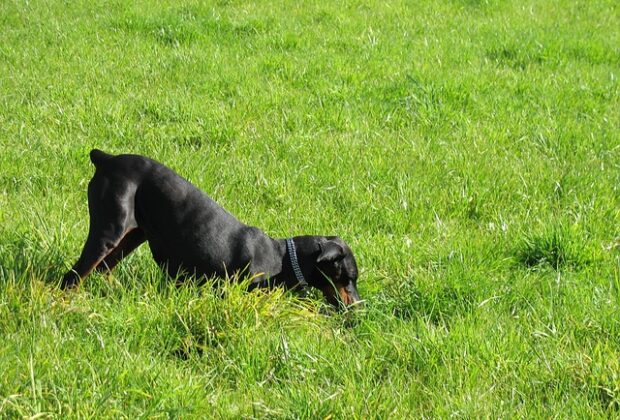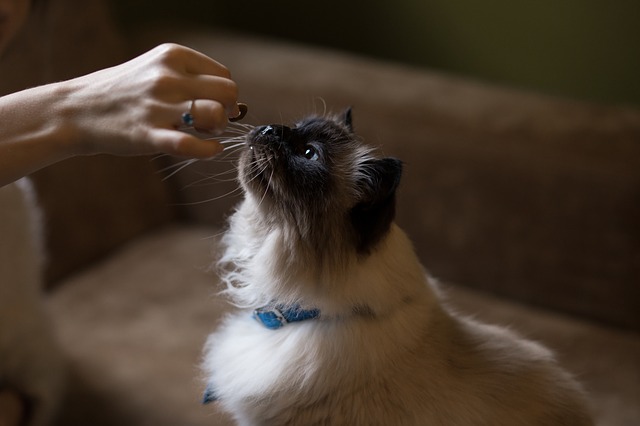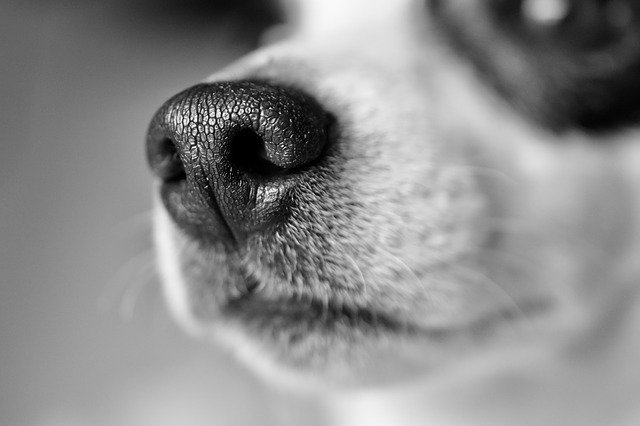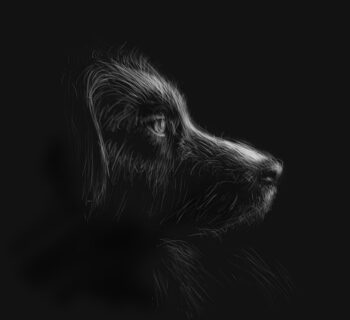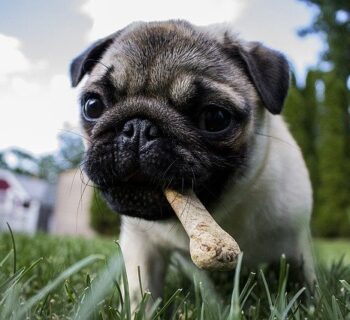If you own dogs, you probably will have seen them bury items more pretty frequently. Why do dogs bury things, though? Is there a reason for this behavior? Is the behavior even expected in the first place? We'll find out in this article.
Table of Contents
Why Does My Dog Bury Things?
Dogs bury things for many reasons, but these reasons are usually not unconnected because it is instinctual for them to want to protect their possessions like food and toys. While some stashes may not be the prettiest sight when discovered, human families have to understand that the behavior is normal and usually not because the dog is poorly trained or dealing with an underlying health condition. That said, we'll list out some of the possible reasons our dogs may bury things and also steps you can take to control the behavior.
The particular breed type
Even though all dogs dig and bury things, some breeds are more inclined to do so than others. Species in this category include Dachshunds, Beagles, Terriers, and Basset Hounds, amongst others.
It is not unconnected to the fact that these types were once bred to search for, chase, and hunt game and have, over the years, retained this skill. As they also dig into the game hunting process, they are likely to save their catch/resources for future use, even if some forget about it later.
They are preserving it for later
Like some animals and humans save food for rainy days, so do canines. Dogs tend to hide the "vital" items for when they need them. This way, these items do not end up lost and the animal stranded. Burying things is also one way to prevent other household pets from stealing or fighting with them over it.
An indicator of stress
Even though not always the case, dogs who hide their possessions may do this out of stress and anxiety. This usually happens when such dog has been around another likely bigger and an older dog who takes his possessions away.
You may also notice the behavior more in multi-dog households or among dogs that grew up in environments where resources were scarce, e.g., puppy mills. Many dogs learn to discard the behavior once they are in an environment they feel safe in and regularly fed.
Instinct
Survival instincts inherited from the domesticated dog's ancestors remain one of the biggest reasons dogs bury things. Food did not always come by quickly in the wild, and the dogs learned to make the most of every meal by burying the excess food in the ground near their living areas. The food is protected from directed sunlight to help keep it fresher for longer to be retrieved for consumption in times of scarcity.
Nausea/poor appetite
Canines dealing with nausea and poor appetite may sometimes attempt to hide their food/push it away or cover it with imaginary dirt. If your dog suddenly avoids its food or seems to be repelled by it, it may be suffering from an undiagnosed health condition. These conditions may be marked by other symptoms such as diarrhea, vomiting, weakness, and other behavioral changes.
Over-feeding
Dogs can sometimes bury or hide food because they are excessively fed. When fed too much food or treats, they save the extra for later. If your dogs save up leftovers after meals, they probably have more than they need. You can set up a feeding schedule and only offer the dog just the amount it needs at a time.
Possessiveness
Some canines are possessive, and it can be especially true in multi-pet households. To protect their precious possessions from other animals in the home, dogs may result in keeping them buried in the backyard, in the blanket, and on the couch. As said earlier, it is often due to anxiety and a scarcity mindset.
Boredom
Like their humans and other pets, dogs can suffer from boredom and may sometimes try to amuse themselves with some activities, including burying food and play items and digging them out as often as they can.
Attention-seeking
Dogs can sometimes steal and bury items that belong to you or others in the home in a bid to get your attention. Items usually buried include TV remotes, shoes, and even clothing. They understand that while the attention they get from you for the behavior may not be positive, they still get some of it when displaying such behaviors. To them, negative attention is better than no attention at all.
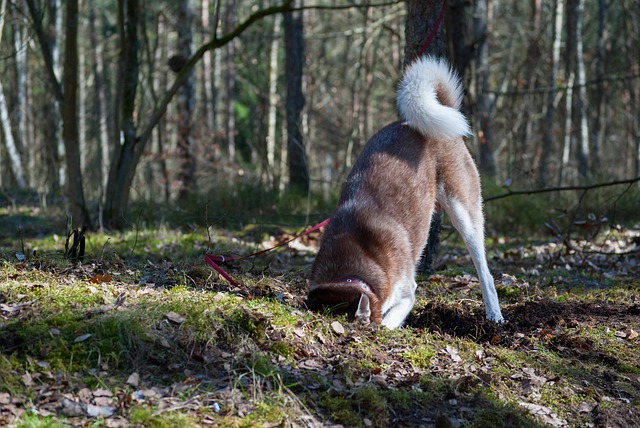
How To Stop a Dog From Burying Things
Thankfully, the behavior can be reduced/corrected with some simple methods. We will discuss some of the below;
Reduce the number of toys
If your dog regularly buries his toys, it is likely because he has too many of them and is saving them up for later. Allow your dog to play with just the amount of toys needed at a time; this way, he is not inclined to bury the extras.
Check for behavioral problems
While not always the case, behavioral issues such as separation anxiety can cause your dog to bury items. If you suspect your dog's burying habit might be from behavioral issues, have a vet or professional dog handler/expert check your dog for diagnosis and treatment to prevent the behavior from worsening.
Schedule playtime with the dog
Schedule time for walks, play, and training to provide your dog with the proper outlet to channel his energy. The playtime with your dog can also be an opportunity to convert the burying into a fun indoor game you can enjoy each week.
During this game, the dog gets the chance to bury what it is asked to instead of essential household items. Soon, the dog will come to know what is okay to hide and what isn't. You can also provide the dog with fun toys to keep him busy when you are away. You can fill some special toys and puzzles with your dog's favorite treats.
Train your dog to stop
While this behavior may arise from boredom, you can reduce it with the right training. When you see your dog trying to bury items out of boredom, call out its name in an upbeat tone, and once you get his attention, redirect him to a preferred digging area or involve him in a short, stimulating play/exercise.
Prepare a controlled eating environment
When training your puppy or adult dog, consider doing so in a controlled environment. You can use a baby gate or barrier so it is unable to take food out of the eating area or kitchen. And after mealtime, promptly removed unfinished meals. To minimize wastage or burying, serve only food your canine can finish at a particular time.
Teach your canine new tricks
Dogs are less likely to fall into bad or unpleasant habits if they are involved in mentally and physically stimulating activities and tricks. Plus, you are also provided with the opportunity to bond during the teaching and learning process. Games/activities you can teach/do together with your canine include;
- Tug
- Fetch
- Morning and evening jogs
Put away items, toys, and treats
One sure way of preventing your dog from burying or hiding things is by putting them away. Keep the toys, treats, and other items out of the reach and sight of your pet, and they will be less tempted to bury them. If they have to play with any of the items, only allow them to do so under supervision or in a controlled environment where they will be unable to hide anything.
Things You Shouldn’t Do When Dogs Bury Things
Again, the burying behavior is normal and primarily instinctual. While you may be understandably concerned about the behavior, you do not also want to ruin your relationship with your dog by creating fear that could cause aggressiveness or timidity. See the training sessions as an opportunity to reinforce the trust and bond between you and the dog. So, when trying to correct your dog's behavior, avoid doing the following;
Yelling; yelling, or hitting your dog may lead to timidity or cause your dog to be aggressive to you and others in the home. Be firm but gentle.
Fussing; when you chase your dog/get fussy every time you see it trying to bury things or take them away, it may wrongly assume that you are involving him in a game of chase, which may worsen the behavior.
Avoid using negative reinforcement; if you need to take away an item, ensure that it is replaced with something better or equally engaging.
Why Do Dogs Bury Things: Conclusion
Our canines are easily some of the most lovable creatures, but many canine owners will agree that some of their behaviors can sometimes be off-putting. The burying habit seems to be high on the list of undesirable habits even though natural.
Thankfully, excessive and "unnecessary" burying can be managed with some methods. Here, we discussed some of them and the don'ts to follow when dealing with such pets. Give some of these methods a try, and let us know how they worked for you in the comment section below.
About the Author
Kirsten Heggarty
Kirsten created The Pet Handbook with the aim of sharing her knowledge about pets, pet food, healthy habits, and more. All of her advice is based on years of her own experience with her pets, and feedback that she has received from grateful readers about her tips. If you want to know more please read the About Me page.

